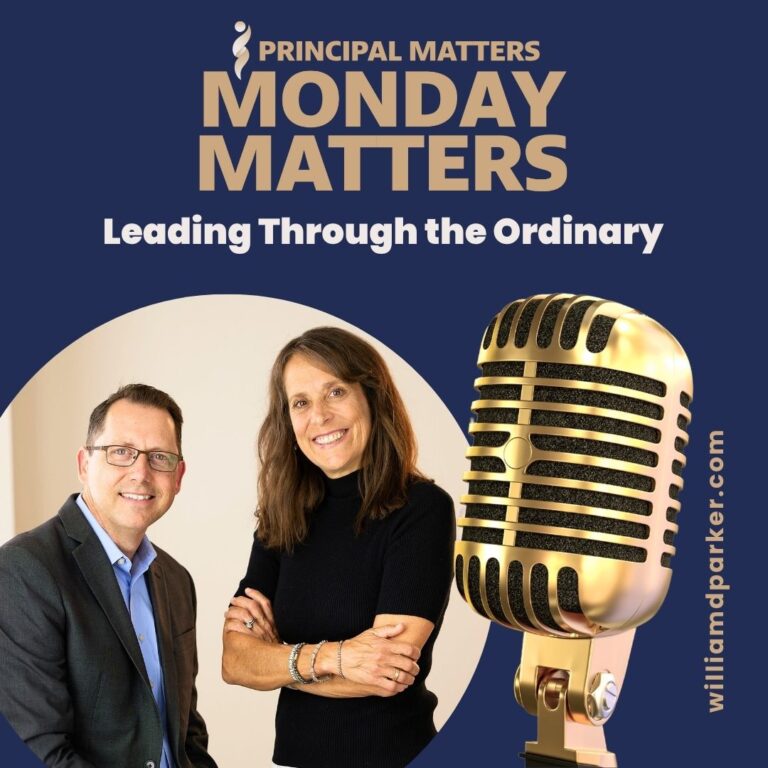When I was a boy, I loved to lay on the front porch at night.
With no streetlights or neighbors, our house was enveloped in darkness, surrounded by swampy creeks and woods, accompanied by the sound of crickets and the serenade of spring frogs.
The blanket of stars above me was a thick, cloudy, mesmerizing maze of constellations.
My dad went through a phase of interest in telescopes, so sometimes we took turns looking for planets or peering at the moon.
Did you know that only one side of the moon is visible from the Earth?
Because of the Earth’s orbit and the moon’s speed of rotation while orbiting, we never see the other side of the moon.
Just like we only see one side of the moon, all of us operate in contexts that no one else is able to see–especially leaders.
What are some ways we can still work effectively with others while accepting that you won’t always be completely understood?
1. Model by taking time to listen.
You may not be able to travel to the places someone else has been. But you can learn a lot by just asking and listening.
Recently, I worked with a student who had suffered significant loss during the past year. He had made some wrong choices along the way, but taking time to listen to his journey helped me understand him better.
I still had to deal with his bad choices, but taking time to listen helped us walk through that process together while maintaining mutual respect.
2. Listen for the stories behind the stories.
A few days ago I was at a meeting with some educators who were sharing openly about their frustrations with how things were going at their schools.
As I listened, I heard some universal statements-words like “always” and “never” for instance. These universal statements are often hiding some important elements of truth. It is easy to become offended when someone says, “My principal always marks bad teachers with the same scores as good ones.”
But when you accept that universal statements are often used when people are frustrated, you can begin to listen for the story behind the story.
So here’s how I chose to hear those words. “What I really want is for my admin to recognize the value of the hard work, dedication, and commitment I give to my students and my profession.”
By listening for the deeper meanings, I was trying to go the other side of that person’s moon, which is what I hope they in turn will do for me.
3. Accept that others will not always understand you.
This may be one of the toughest lessons in leadership and in life. We all want to be understood and respected.
But in leadership, you are often responsible to protect information that is highly confidential or private. Others may never have access to the information or context you have been dealing when they are discussing issues with you.
For instance, a teacher who is simply seeking you out to ask for help with a classroom purchase may have no idea that you just dealt with a DHS worker who was sent to transport a minor back to state custody after their host family declined to provide housing any longer.
You may have just spent the last thirty minutes calming an upset parent or finishing the forty-eighth page of your accreditation report, but you do not always have the luxury of explaining that context when your teacher or team player only has a moment to interact with you.
Because others deserve our respect and attention, we cannot hold them hostage to whatever challenges or frustrations we are facing.
So it is okay to accept that others can’t see the side of the moon you are facing. And it’s helpful to remember, they have areas you can’t see either.
Conclusion
If you were able to travel into space and circle to the back side of the moon, you would see its other side–it’s there, blocked from Earth’s view but still illuminated by the light of the sun nonetheless.
Recognizing that I can’t see “the other side of the moon” in a person’s life, keeps me searching for clues to what’s over there.
Accepting that they may not ever see the whole context of my own perspective frees me from holding onto resentment or self-pity as I make the best decisions I can with the information that I have available.
I know it’s much more popular and satisfying to have others understand your point of view. But we sometimes have stronger trust when we accept the that we are limited in our perspectives, need to listen openly to learn from one another, and give each other the benefit of the doubt even when we can’t always see the other side of every issue.
Now It’s Your Turn
What are some ways you have learned to handle being misunderstood? What are ways you’ve learned to try to see issues from others’ perspective? Do you have additional tips for leading while being limited in what you can share with others?
Sign-Up For Free Updates and Ebook
When you enter your email address here, you will automatically receive my newest posts. Let’s keep learning together!




